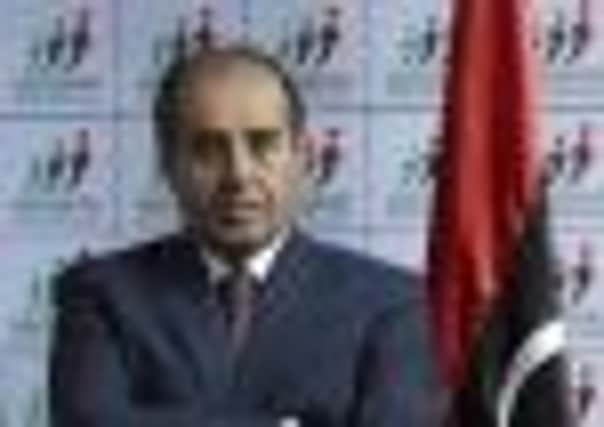Libya chooses rebel ‘prime minister’ over Islamic parties


Results yesterday appear to show that Libya will not join fellow Arab Spring nations Egypt and Tunisia in electing an Islamist government.
Instead, Libyans appear to have opted for a political pragmatist who was a key economist in the regime of Muammar al-Gaddafi but switched sides to join last year’s revolution.
Advertisement
Hide AdAdvertisement
Hide AdPredictions by Mr Jibril’s campaign staff that he would sweep the board in Tripoli appeared to be confirmed with the result for Janzour, the capital’s western-most suburb, where he won 26,000 votes, swamping the Muslim Brotherhood’s Justice and Construction party, which polled just 2,400.
In the coastal town of Zlitan, previously a Gaddafi stronghold, Mr Jibril’s National Forces Alliance party won 19,000 votes to the Brotherhood’s 5,000.
But Misrata, Libya’s third city and scene of the revolution’s heaviest fighting, bucked the trend, with the city-based Homeland Union party winning more than 20,000 votes, with Mr Jibril back in fourth with 5,000.
Abdurrahman Sewehli, Homeland Union’s leader, told The Scotsman: “Symbolism is very important. Jibril is still representing the old regime.”
Mr Jibril, 60, refused to comment on reports he was heading for victory, but made a speech seen as laying the ground for leading a coalition government.
“They say in the media that we have won. We did not. We are still silent and confident,” he said. “We extend an invitation to other political forces to come together in one coalition.”
Although only three results have been ratified by the election commission, polling stations have posted their results, allowing party officials to make their own predictions. Those put Mr Jibril’s party first, with the Brotherhood trailing behind.
Several more radical Islamist parties fared even worse, in a country which, while highly conservative, seems to have turned its back on radical Islam.
Advertisement
Hide AdAdvertisement
Hide AdHowever, two-thirds of the seats in the 200-seat parliament are reserved for individual candidates, a structure that, in such a fractious country, is likely to make coalition building a time-consuming exercise.
Nevertheless, the result has been both a boon for liberals and a shock to the Islamists.
Western business and oil importers are likely to greet these early results with a sigh of relief: Above all, Mr Jibril is seen as a pragmatist, happy to do business with the outside world and lacking an Islamist agenda.
Mr Jibril is a US-educated political scientist. A respected economist, he was recruited as head of Libya’s national planning by Gaddafi in 2007 and tasked with working with the dictator’s son, Saif Al Islam, to design a reformist economic agenda.
That agenda was never implemented. When rebellion broke out last February, Mr Jibril quickly switched sides and became de facto prime minister of the rebel National Transitional Council.
His shepherding of EU states in giving aid and support to the rebels earned him plaudits at home and abroad, but he also made enemies and was sacked in a reshuffle last November.
But behind the scenes he has worked hard at cementing an unlikely alliance, spanning former Gaddafi elements of the old regime, liberals, and leaders of his southern tribe, the Warfalla, one of the biggest in Libya.